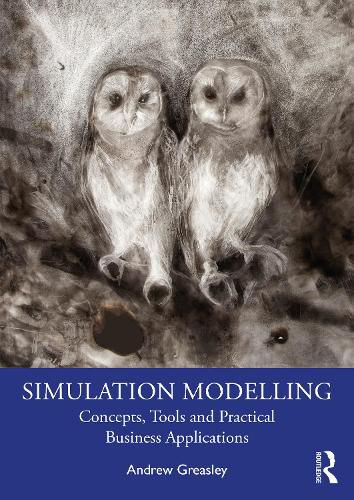Readings Newsletter
Become a Readings Member to make your shopping experience even easier.
Sign in or sign up for free!
You’re not far away from qualifying for FREE standard shipping within Australia
You’ve qualified for FREE standard shipping within Australia
The cart is loading…






While simulation has a vast area of application, this textbook focuses on the use of simulation to analyse business processes. It provides an up-to-date coverage of all stages of the discrete-event simulation (DES) process, covering important areas such as conceptual modelling, modelling input data, verification and validation and simulation output analysis.
The book is comprehensive yet uncomplicated, covering the theoretical aspects of the subject and the practical elements of a typical simulation project, demonstrated by cases, examples and exercises. It also shows how simulation relates to new developments in machine learning, big data analytics and conceptual modelling techniques. Guidance is provided on how to build DES models using the Arena, Simio and Simul8 simulation software, and tutorials for using the software are incorporated throughout.
Simulation Modelling offers a uniquely practical and end-to-end overview of the subject, which makes it perfect required or recommended reading for advanced undergraduate and postgraduate students studying business simulation and simulation modelling as part of operations research, business analytics, supply chain management and computer science courses.
$9.00 standard shipping within Australia
FREE standard shipping within Australia for orders over $100.00
Express & International shipping calculated at checkout
Stock availability can be subject to change without notice. We recommend calling the shop or contacting our online team to check availability of low stock items. Please see our Shopping Online page for more details.
While simulation has a vast area of application, this textbook focuses on the use of simulation to analyse business processes. It provides an up-to-date coverage of all stages of the discrete-event simulation (DES) process, covering important areas such as conceptual modelling, modelling input data, verification and validation and simulation output analysis.
The book is comprehensive yet uncomplicated, covering the theoretical aspects of the subject and the practical elements of a typical simulation project, demonstrated by cases, examples and exercises. It also shows how simulation relates to new developments in machine learning, big data analytics and conceptual modelling techniques. Guidance is provided on how to build DES models using the Arena, Simio and Simul8 simulation software, and tutorials for using the software are incorporated throughout.
Simulation Modelling offers a uniquely practical and end-to-end overview of the subject, which makes it perfect required or recommended reading for advanced undergraduate and postgraduate students studying business simulation and simulation modelling as part of operations research, business analytics, supply chain management and computer science courses.